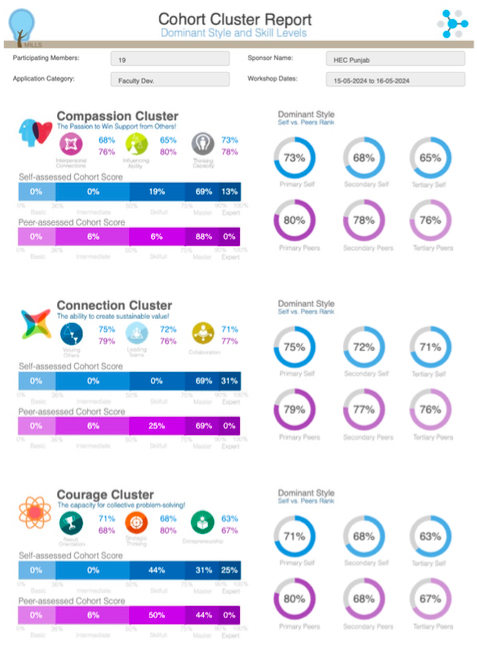Cultural & Social Context
Over the past ten years, we have been developing and testing curricula and teaching methods designed to enhance the classroom learning environment. This journey has involved working with a wide range of academic settings, from public to private educational institutions, as well as across all education levels from elementary to higher education. Our research has been focused on creating a comprehensive approach that balances the spiritual, personal, and social aspects of learning, tailored to our unique cultural and social context of Pakistan.
Virtuous Leadership Triangle!
These three dimensions of learning can help educators develop a deeper understanding of the three key consciousnesses essential for learning—God, Self, and Social-consciousness (Image) —allowing them to recognise the interconnectedness of these aspects in both teaching and learning. These three consciousnesses come together to form The Virtuous Triangle which is aimed at fostering a holistic approach to Learning and Development.
Image: The three dimensions of Tarbiyah Curriculum: God, Self, and Social-consciousness.
Holistic Learning & Teaching
HLT is an educational approach that connects learning outcomes with specific behavioral skills to promote overall teacher effectiveness in a classroom setting. Working with various academic institutions, our goal is to introduce potential estimation at recruitment stage, and connect performance management with incentives, using targeted behavioral measurements to drive positive teaching outcomes toward building an effective overall learning environment. HLT emphasizes the importance of not just subject-matter expertise, but also behavioral conduct in creating a conducive learning environment.
Our Workshop Design
Our comprehensive workshop design integrates various elements to create awareness of the Tarbiyah Curriculum and the Virtuous Triangle:
- Comprehensive Behavioral Framework: A detailed framework covering 9 domains, 36 sub-domains, and 25 core behaviors will guide the pilot program, ensuring the consistent application of behavioral standards.
- LEGO®-Based Pedagogy: Integrate LEGO® activities within a structured workshop format to maintain audience engagement, encourage hands-on problem-solving, and foster a sense of ownership among participants.
- Gamified Learning: Employ gamification techniques to make workshop content more interactive and engaging, promoting active, user-driven participation in a fun learning environment.
- Teacher Profiling Modules: Implement online self and peer profiling modules as a follow-up to the workshops, enabling comprehensive scoring and feedback for educators to enhance their teaching practices.
Some of the workshop modules designed for faculty engagement:
- LEGO Serious Fun: We use LEGO® Serious Fun to foster a unified language and shared bond to lay foundation for authentic communication, collaborative learning and committed consensus toward problem-solving.
- Social Consciousness: Understanding drivers, barriers and sharing personal experiences are crucial to recognising the behavioral framework governing social consciousness.
- Tarbiyah Strands: Helping participants understand this holistic approach to learning that goes beyond traditional educational philosophies, toward creating holistic-humans and righteous problem-solvers.
- Think with your hands: LEGO® Serious Play™ activities help articulate vision of an ideal classroom, identifying areas to leverage and build upon toward creating more effective learning spaces.
- Game Storming & Questioning: Through game-storming, specific problems or challenges for the community can be addressed. Individual or team presentations are supported by 5-question types, to create a deeper understanding of the suggested solutions or ideas and to improve learning outcomes for the cohort.
- Student Segmentation: Participants work in diverse teams to develop insights into student learning tendencies and preferences to form hypotheses around student psychographic segments, leading to development of appropriate classroom management tactics.
- Online Assessments: Participants undergo self & peer assessments based on 25 Core Behavioral Inventory (LSI) to gain valuable insights into their teaching practices and areas for improvement.
- Dominant Teaching Styles: Help participants connect teaching styles to effective teaching strategies, fostering a deeper awareness of their approach to students. Image: Sample Cohort Report



